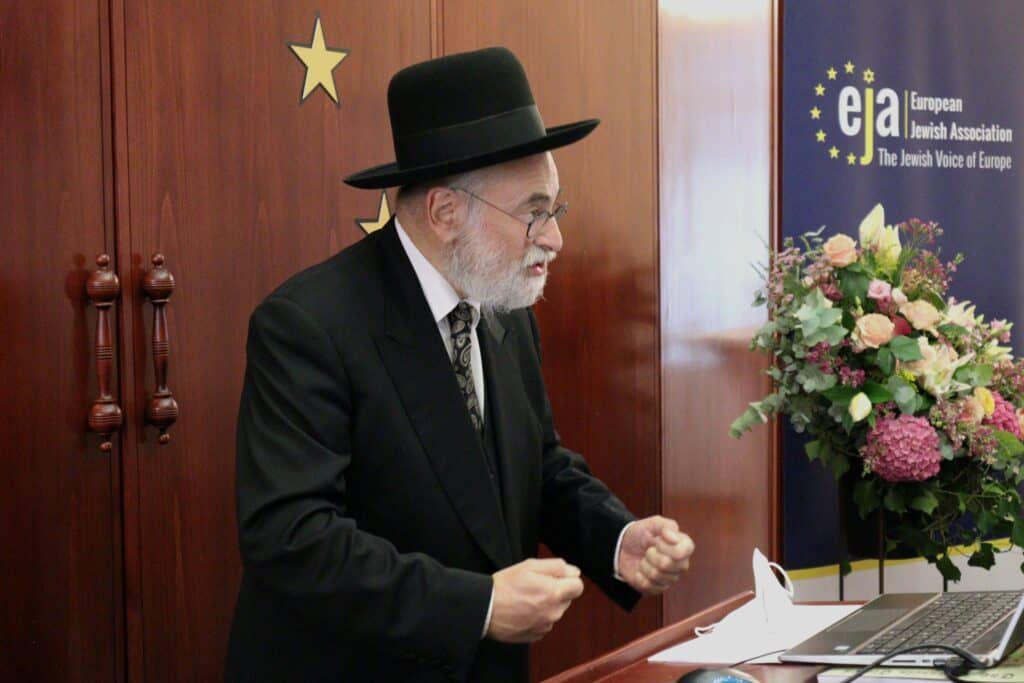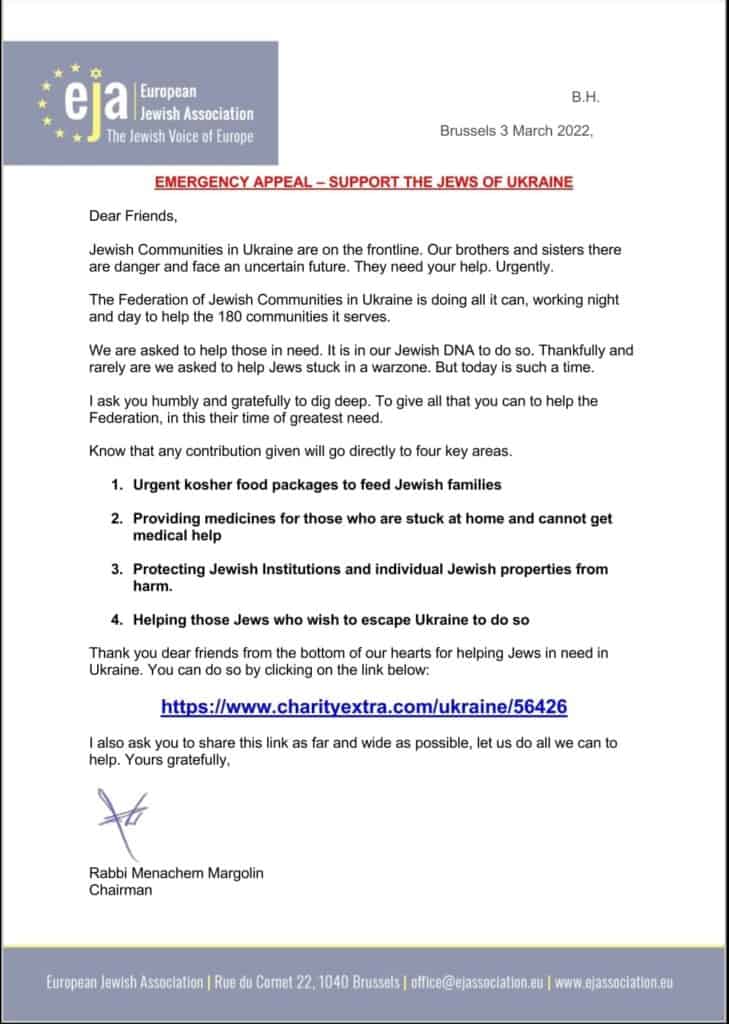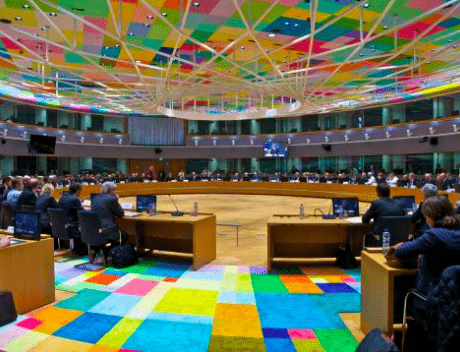Nachdem der Krieg in der Ukraine in die zweite Woche geht, erlebt Europa einen enormen Zustrom von Flüchtlingen, die aus der Ukraine in den Westen fliehen. Darunter sind auch zahlreiche ukrainische Juden, die sich in Sicherheit bringen wollen.
Die European Jewish Association (EJA) mit Sitz in Brüssel, ein Dachverband, in dem mehrere hundert Gemeinden auf dem gesamten Kontinent vertreten sind, hat eine europaweite Kampagne gestartet, um vorübergehend Wohnungen, Lebensmittel und Kleidung für jüdische Familien bereitzustellen, deren Leben durch den Konflikt in der Ukraine zerrüttet und zerstört worden ist.
Der Aufruf wurde an jüdische Gemeinden von Lissabon bis Lublin, von Bukarest bis Bordeaux in ganz Europa verschickt.
Der Vorsitzende der EJA, Rabbiner Menachem Margolin, sagte nach dem Start der Kampagne: „Die Geschichte des jüdischen Volkes ist eine Geschichte der Vertreibung, sei es durch Pogrome oder Krieg. Wir wissen nur zu gut, was es bedeutet, wenn man gezwungen ist, von einem Moment auf den anderen zu fliehen. In fast jeder unserer Gemeinden werden Sie solche Geschichten hören. Von Generationen aus Spanien oder Galizien, vom Krieg bis zur Auswanderung nach Israel. Ich sage das, weil wir für diese Katastrophen besonders sensibilisiert sind. Und weil wir so sensibilisiert sind, sind wir dazu bestimmt, unseren jüdischen Nachbarn zu helfen, so wie wir es immer getan haben.“
Er fügte hinzu: „Ich bin zuversichtlich, dass diese Kampagne etwas bewirken wird. Seit Beginn des Krieges haben sich Juden aus ganz Europa an uns gewandt, um zu erfahren, wie sie ihren ukrainischen jüdischen Brüdern und Schwestern in Not helfen können. Wir geben ihnen die Möglichkeit, genau das zu tun, indem wir denjenigen, die in aller Eile und oft mit nichts als den Kleidern auf dem Leib das Land verlassen haben, Unterkunft, Essen und Kleidung anbieten.“


















